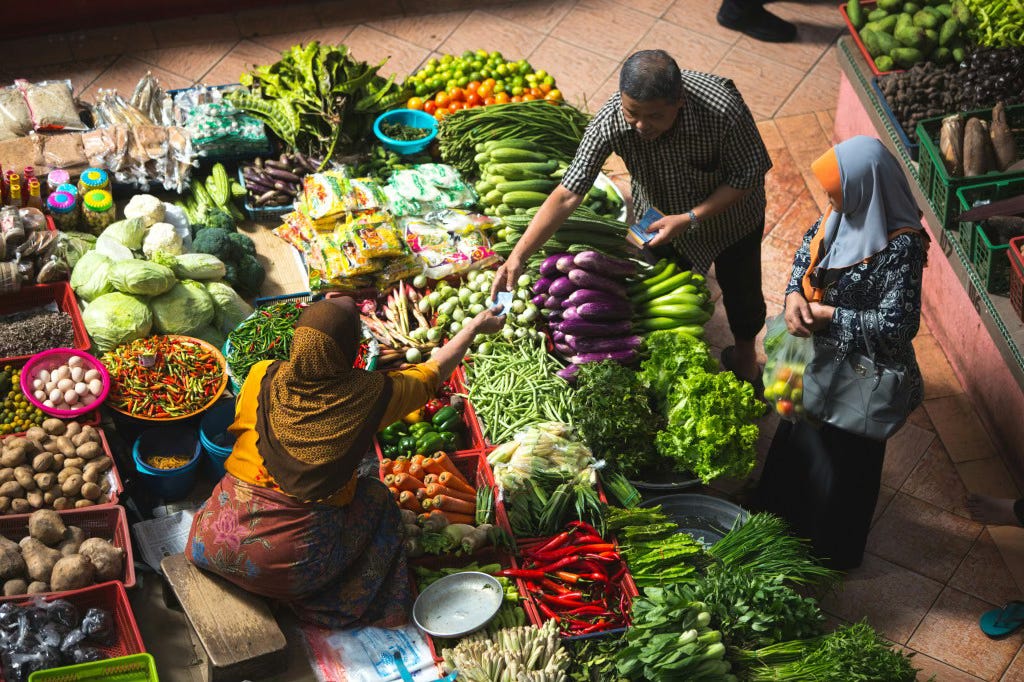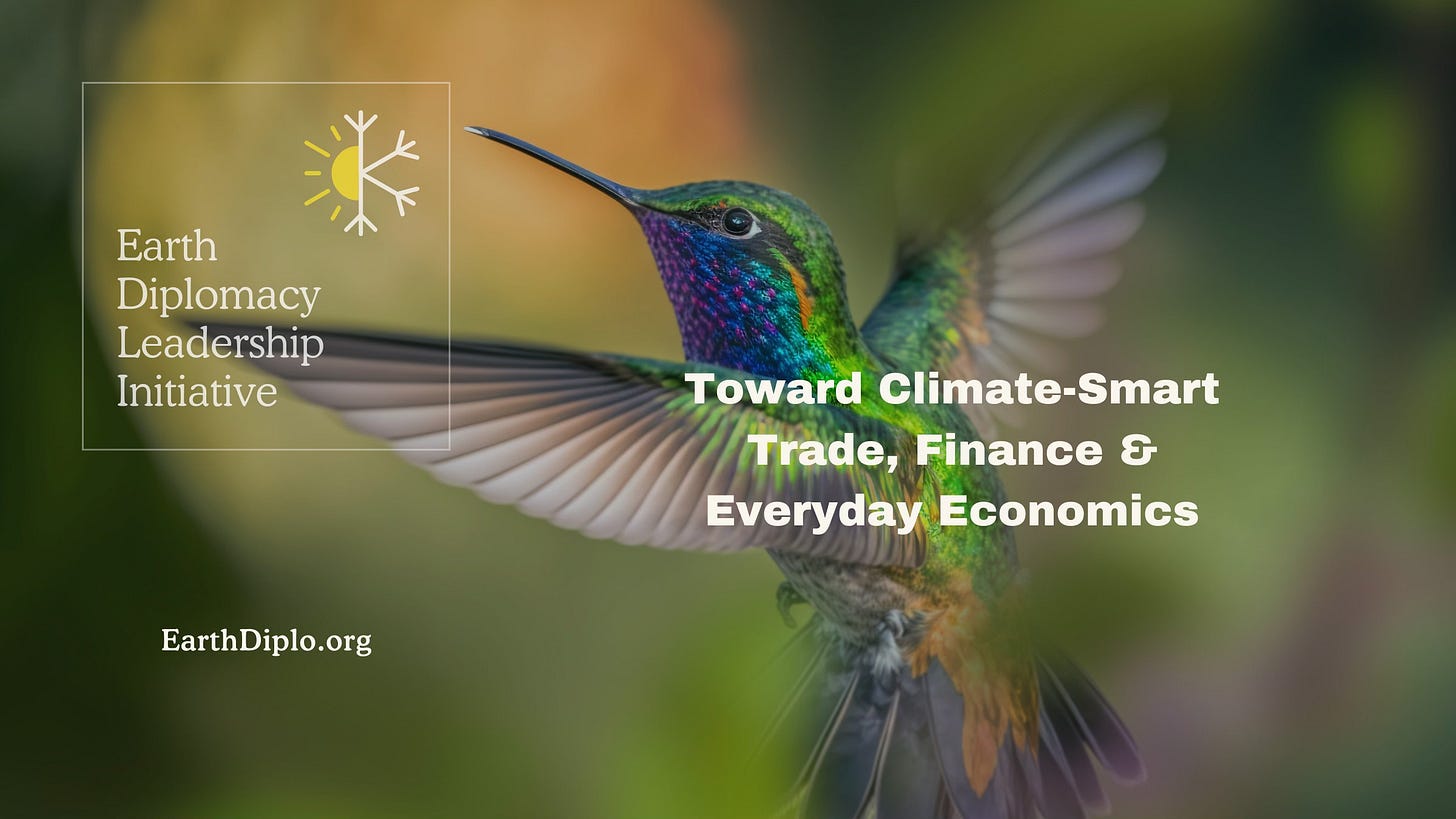Stop the loss of Climate Value; build a better future
Key institutions and funding sources are facing an uncertain future; CCI is working to advance health-building sustainable food systems; complex challenges create real opportunity for shared progress.
2025 is a busy year for news—in particular the kind of political news that defies conventional wisdom, disrupts everyday operations, and calls the future of value-creation into question. From tariffs to agency shutdowns and other actions without clear legal foundation, to reopenings mandated by law, to shock changes in the course of armed conflicts, nothing seems to be stable.
In the midst of a major boom in tech stocks, with talk of AI taking over civil service responsibilities, those companies most connected to AI-enabling data systems suffered all-time record losses in a single day of trading that erased more than $1 trillion in market capitalization. What may be getting lost in the mix is that measurable Climate Value is being lost or forsaken, in exchange for short-term bets that look shaky at best.
CCI is working to advance health-building sustainable food systems.

At Climate Civics International, March was a time for expanding our network’s efforts to advance health-building, sustainable food systems. Food systems tie human industry and investment to planetary health and to human wellbeing, everywhere. Since global food crisis continues to become more likely, we have moved on a number of fronts to give stakeholders and policy-makers more actionable insights, to reorient mainstream activities and build a more secure future.
We launched the City Food Finance Principles to Build Climate Value:
Common Reality – Health-building, nutritious, sustainably produced food should be an affordable, accessible everyday option for all.
Delivering Impact – Cities deliberately play the role of impact investor, to shape healthy, sustainable food environments.
Urban-Rural Feedbacks – Cities work with surrounding rural areas to support convergence of consumption, production, and incentives.
Multilevel Cooperation – Cities engage with regional and national authorities to support enhanced implementation of national climate, food, health, and biodiversity plans.
Co-Investment – Cities engage proactively to shape and mobilize investment partnerships linked to a broader Co-Investment Platform for Food Systems Transformation.
Tracking and Labeling – Cities act as critical intermediaries to support needed data systems integration and multidimensional metrics.

We also hosted a workshop focused on levers for Advancing Climate-Smart Trade & Finance. As we noted in our report from the session:
A headline takeaway from the discussion is that multidimensional climate cooperation can improve lives and livelihoods, while reducing climate risk and building climate value. Such cooperative arrangements are not only strong candidates for improved deployment of climate-related finance; they are means of mainstreaming and, by extension, rapidly scaling climate-smart financial innovation.
Our recent Capital to Communities update focused on localizing financial innovation—emphasizing the fact that:
Leverage points for building overall optimized and enduring value exist throughout the web of summit to seabed connections. Each of those leverage points becomes investable with locally rooted, relevant, and actionable insights, and investment to drive measurable improvements.
A key insight from the Data Systems Integration Forum we hosted for the Good Food Finance Network was that—in financial innovation, in data-sharing, in business model innovation, and in work toward affordable nutrition, we must consider the human. That means the fate and interest of the human being in the wider system and also the value of each person having more agency, better livelihoods and greater means, and more freedom and safety.
We joined an open letter from 153 winners of Nobel Prizes and the World Food Prize, calling for a Nutrition Security Moonshot. In our statement of support, we noted:
The promise inherent in applied Earth systems science data making new livelihoods, and better compensation, available to vulnerable agricultural communities goes beyond climate resilience. Such data systems can bring major new investment and diversified job creation to remote communities, and make it easier to give consumers the information they need to support the best practices and products.
There is opportunity in complexity.
All of these are context for our examination of diplomacy under pressure and the opportunities inherent in the climate negotiations that will take place in Belém, in Brazil, in November. The discussion focused on the need for quality of resourcing and actions in key areas, including finance, process, science and open access to reliable information, and effective adaptation and resilience measures.

Follow-up Earth Diplomacy Leadership sessions will build on this core insight:
In 2025, stark choices stand before political and business leaders. As climate disruption spreads and complicates, new modes of finance, trade, development, and innovation, need to take root and start building new kinds of value. When leaders dither and delay on effective climate crisis response, food insecurity, spillover pathogen risk, and the seeds of conflict spread and induce forced displacement and destabilization.

